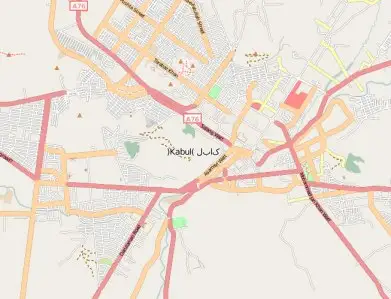Flu alerts and what it says about the future power of information
The other day I stumbled over this news piece: "The phone that feels the flu before you do" – a company offers a service, where one can find out how intensive the level of flu is in their area. So, basically, you can get "Open Source Intelligence" via mobile phone. I find this quite fascinating because of the potential it entails for other usages and it also says a lot about the future power of information.
Different to older times when you went to your PC to search for information such as a definition on Wikipedia, in the future you can access it anywhere, and you also: a) get real time information about what happens around you and b) you get to participate collectively to refine information, for example through mobile crisis mapping. So imagine mobile phone users engaging in such a collective information gathering for all kinds of purposes. But who will own the information and could it be guaranteed to be open and reliable?
In the case of the flu alert, the company "will say, for instance, that 8 percent to 14 percent of the people in your ZIP code have respiratory illnesses, representing a "Moderate" risk level." Personally, it would not influence my decision to leave the house or not. To me, the case of the flu alert highlights the potential to use such services for other purposes also in other areas. I find the use of widely available valuable information for the public very interesting. All sorts of available intelligence is broad to you on your mobile phone. So is the case of fixmystreet.com, from which I can report damages in my neighbourhood and report it to the responsible person; or I can check product information through a common source written by consumers in the supermarket. More importantly, I could have access to environmental data on the corner I am standing at? I can foresee a lot of potential, but also I am worried about locked information, no clarity of ownership and too little access to information.
In the flu alert example, the company "gets the information on disease levels from Surveillance Data Inc. — which gets its data from polling health care providers and pharmacies." It sounds almost as a mashup, where you combine different data sources. I imagine the future lies in combining intelligently different open available data resources, for example through RSS/feeds or API to provide open intelligence. Such steps are some interesting startups around climate change, which offer API (Application Programming Interface) for different sorts of environmental data – it simply means, that you can use their data for your own purposes or services and combine different data streams. For example, the World Bank offers "114 indicators from key data sources and 12,000 development photos" and AMEE, the climate change startup, offers an "open platform for measuring the energy consumption of everything" (Check www.openeco.org/ for more on sharing data to measure climate change).
Google found a much easier way to publish the flu intensity in an area by simply analyzing and mapping search request for flu related issues. So Google will not only make revenue by advertisement, but through offering various of these kinds of services in the future. But frankly, I am a bit concerned about it since a lot of information resides within companies and it is in many cases not publicly available or cannot be used by nonprofits. In the case of Google, the potential to analyze society behaviour is unlimited. If they focus, for example, on the local level, all kinds of patterns and differences can be found out (e.g. politics, consumerism or health). It seems to me that the future asset will be this sort of information power. The challenge can be easily seen when you compare OpenstreetMap and Google maps for the cities of Kabul, Afghanistan (Google – Openstreetmap) and Luanda, Angola (Google – Openstreetmap). In both cases the open source approach for maps offers better maps done by volunteers. (Thanks to aidworkerdaily.com for the inspiration!)
I think we have just started to tap on the potential of these rich resources, but also will need a lot of further discussion on what type of information needs to be openly available.

